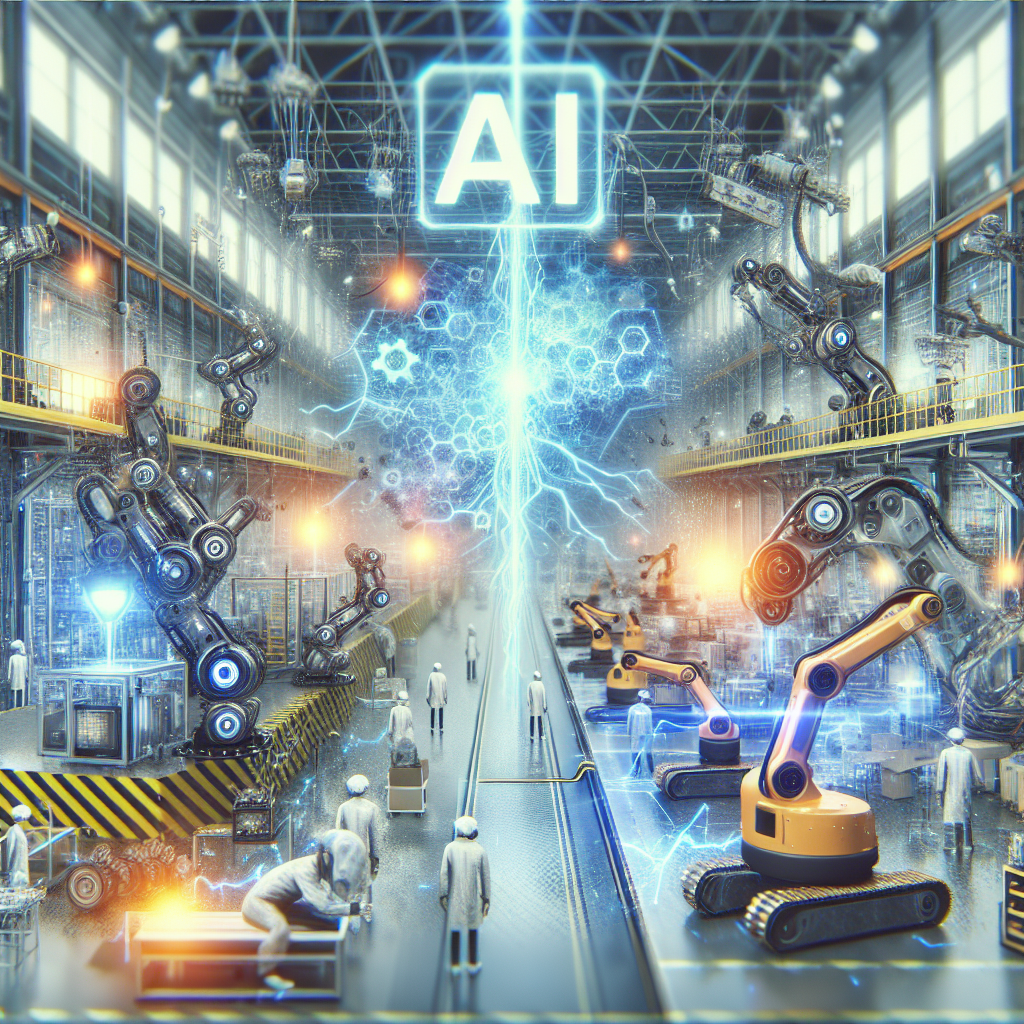As artificial intelligence (AI) continues to revolutionize industries around the world, the manufacturing sector is no exception. AI has the potential to greatly improve efficiency, productivity, and quality in manufacturing processes. However, with the benefits of AI also come risks and challenges that must be carefully considered and addressed. In this article, we will explore the potential risks of AI in manufacturing, including challenges and concerns that manufacturers may face.
1. Job Displacement: One of the most significant risks associated with the adoption of AI in manufacturing is the potential for job displacement. As AI technologies become more advanced, there is a concern that they will replace human workers in certain roles, leading to job losses and economic disruption. While AI can automate repetitive tasks and improve overall efficiency, it can also result in the loss of jobs that require manual labor or routine decision-making.
2. Data Security: Another major concern with the use of AI in manufacturing is the risk of data security breaches. AI systems rely on vast amounts of data to function effectively, and this data can be vulnerable to cyber attacks or unauthorized access. Manufacturers must ensure that robust security measures are in place to protect sensitive data and prevent breaches that could compromise their operations and reputation.
3. Lack of Transparency: AI algorithms can be complex and difficult to interpret, leading to concerns about transparency and accountability in manufacturing processes. If AI systems make decisions that are not easily explainable or understandable by humans, it can be challenging to identify and address errors or biases in the system. Manufacturers must strive to make their AI technologies transparent and accountable to ensure that they operate ethically and effectively.
4. Safety Risks: AI-powered machines and robots in manufacturing environments can pose safety risks to workers if not properly controlled and monitored. There is a concern that autonomous machines could malfunction or make errors that result in accidents or injuries. Manufacturers must implement strict safety protocols and training programs to ensure that AI technologies are used safely and effectively in their facilities.
5. Ethical Concerns: AI technologies in manufacturing raise ethical concerns related to privacy, fairness, and decision-making. For example, there is a risk that AI systems could be used to monitor and control workers in ways that infringe on their privacy rights. Additionally, AI algorithms may inadvertently perpetuate biases or discrimination if not carefully designed and monitored. Manufacturers must be aware of these ethical considerations and take steps to ensure that their AI technologies are used responsibly and ethically.
Overall, the risks of AI in manufacturing are significant and must be carefully managed to realize the full potential of these technologies. By addressing challenges and concerns related to job displacement, data security, transparency, safety, and ethics, manufacturers can harness the power of AI to drive innovation and growth in their operations.
FAQs:
Q: How can manufacturers mitigate the risks of AI in manufacturing?
A: Manufacturers can mitigate the risks of AI in manufacturing by implementing robust security measures, ensuring transparency and accountability in AI systems, prioritizing safety protocols, and addressing ethical concerns in their use of AI technologies.
Q: What are some examples of AI technologies used in manufacturing?
A: Some examples of AI technologies used in manufacturing include predictive maintenance systems, quality control algorithms, robotic process automation, and machine learning algorithms for production optimization.
Q: How can AI improve efficiency in manufacturing?
A: AI can improve efficiency in manufacturing by automating repetitive tasks, optimizing production processes, predicting maintenance needs, and reducing waste and downtime.
Q: What are the key considerations for manufacturers when implementing AI technologies?
A: Key considerations for manufacturers when implementing AI technologies include data security, transparency, safety, ethics, and workforce training and reskilling to adapt to automation and AI technologies.

